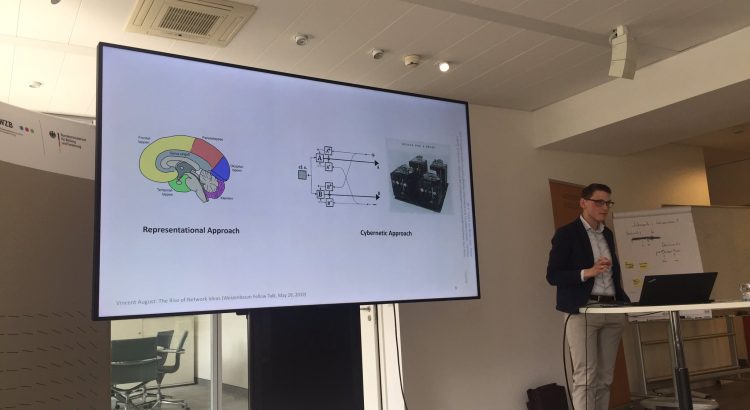Mittwoch, 12. Dezember 2018
Weizenbaum-Institut, Raum A104
Veranstaltungswebsite
What should a democracy know about citizens? While in times of digital surveillance and Big Data we may need new answers to this question, the general relation between digital transformation and democracy as object of democratic theory remains complex – on the one hand for the conceptual diversity of ‘digital transformation’ but also and additionally because ‘democracy’ itself is understood and conceptualized differently. In his talk, Alexander Weiß showed that the spectrum of understandings and meanings of democracy is even broader than we know from Western discourses: Democratic thought specifically reacting to regional and historical constellations is existing in all regions of the world, e.g., democratic thought from India and China has evolved in rich and diverse traditions. Before this horizon his question was: How is digital transformation perceived, framed, and evaluated in Chinese and Indian theories of democracy?
 In this episode our former fellow Vincent August poses the question why we describe our societies in terms of networks. He reveals how social and political thought deliberately enforced cybernetic network ideas to re-shape the way we think about society and politics. He argues that this technological narrative and the associated concepts of complexity, self-regulation and network governance have been extremely influential ever since although its roots in cybernetics have rarely been acknowledged.
In this episode our former fellow Vincent August poses the question why we describe our societies in terms of networks. He reveals how social and political thought deliberately enforced cybernetic network ideas to re-shape the way we think about society and politics. He argues that this technological narrative and the associated concepts of complexity, self-regulation and network governance have been extremely influential ever since although its roots in cybernetics have rarely been acknowledged.
